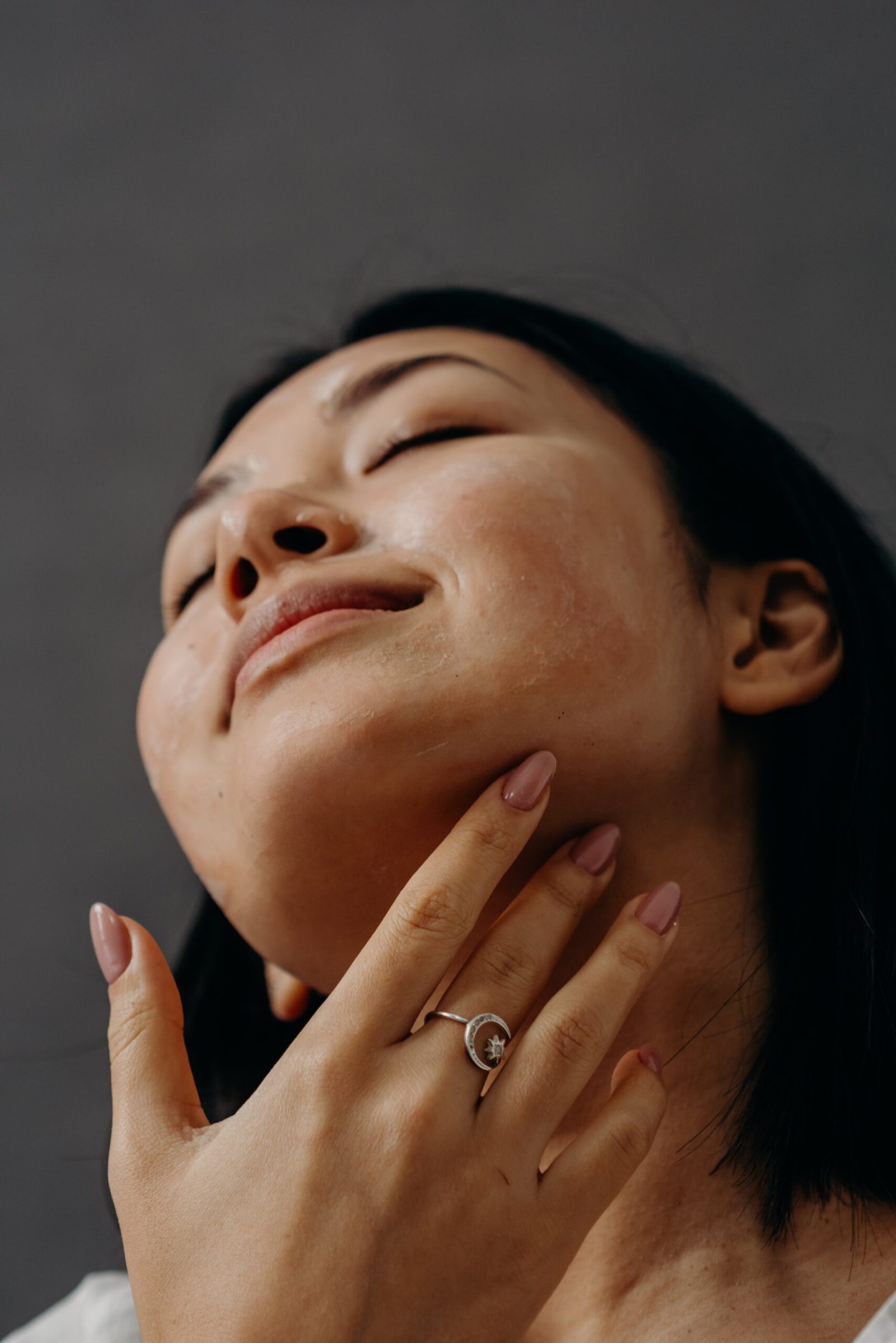
Do you often wake up in the morning with an achy neck that puts a damper on your day? If so, look no further for solutions to alleviate this discomfort! In this article, we will explore various effective methods to help you tackle neck pain in the morning and start your day off on the right foot. From simple stretching exercises to ergonomic adjustments, we’ve got you covered. Say goodbye to those painful mornings and hello to a blissful start to your day!

Adjusting Sleeping Position
Choose a supportive pillow
One of the most common causes of neck pain in the morning is sleeping on the wrong pillow. It’s crucial to choose a pillow that provides adequate support for your neck and head. Look for a pillow that is the correct height and firmness for your sleeping position. For example, if you sleep on your side, a pillow with a higher loft can help keep your spine aligned. If you sleep on your back, a medium-firm pillow will help prevent your head from sinking too far into the pillow. Experiment with different pillows until you find one that keeps your neck in a comfortable and neutral position throughout the night.
Try a different sleeping position
Sometimes, simply changing your sleeping position can work wonders for alleviating neck pain. If you typically sleep on your stomach, this position may be putting excessive strain on your neck. Try transitioning to sleeping on your side or back, which can help maintain a more natural alignment of your spine. Place a pillow between your knees if you sleep on your side or under your knees if you sleep on your back to further support your spine.
Use a neck roll or towel for added support
If you still experience neck pain after adjusting your pillow and sleeping position, consider using a neck roll or towel for additional support. Roll up a towel or purchase a neck roll specifically designed for neck support. Place the roll or towel underneath your neck while sleeping to help maintain a neutral spine alignment. This added support can relieve pressure on your neck muscles and help prevent stiffness and pain in the morning.
Improving Sleep Environment
Invest in a quality mattress
Another factor that contributes to neck pain in the morning is sleeping on an old or insufficient mattress. If your mattress is sagging or doesn’t provide adequate support, it can result in poor spinal alignment and increased tension in your neck muscles. Consider investing in a high-quality mattress that suits your preferred sleeping position. Look for one that offers proper support and allows for even distribution of your body weight. Remember, a good night’s sleep starts with a comfortable and supportive mattress.
Ensure proper room temperature
Creating a conducive sleep environment is essential for a restful night’s sleep and to prevent waking up with neck pain. Keep your bedroom at a cool and comfortable temperature – generally between 60 to 67 degrees Fahrenheit. Extreme temperatures can disrupt your sleep and cause muscle tension in your neck. Experiment with different settings to find the temperature that works best for you and promotes a restful night’s sleep.
Reduce noise and light in the bedroom
Noise pollution and excessive light in the bedroom can also disrupt your sleep and contribute to neck pain in the morning. Use blackout curtains or an eye mask to block out any unwanted light that can interfere with your sleep quality. Consider using earplugs or a white noise machine to drown out any noises that may disturb your sleep. Creating a calm and peaceful sleep environment will not only help alleviate your neck pain but also improve the overall quality of your sleep.

Stretches and Exercises
Neck rolls
Neck rolls are simple yet effective stretches that can help relieve tension in your neck muscles and alleviate neck pain in the morning. Start by sitting up straight or standing with your shoulders relaxed. Slowly drop your chin down toward your chest, then slowly roll your head to the right, bringing your right ear towards your right shoulder. Hold this position for a few seconds, then roll your head to the left, bringing your left ear towards your left shoulder. Repeat this exercise several times in each direction, being mindful of any discomfort or pain.
Shoulder shrugs
Shoulder shrugs can help release tension in your neck and shoulder muscles, reducing the likelihood of waking up with neck pain. Start by sitting or standing with your arms relaxed by your sides. Inhale deeply and, as you exhale, raise your shoulders up towards your ears. Hold this position for a few seconds, then release your shoulders back down. Repeat this exercise several times, focusing on relaxing your neck and shoulder muscles with each repetition.
Chin tucks
Chin tucks are an excellent exercise for improving your posture and relieving neck pain. Begin by sitting up straight with your shoulders relaxed. Gently draw your chin back, creating a double chin. Hold this position for a few seconds, then release. Repeat the exercise several times, focusing on maintaining a neutral spine alignment and avoiding any strain or discomfort in your neck.
Side-to-side neck stretches
Side-to-side neck stretches can help improve flexibility and relieve stiffness in your neck muscles. Start by sitting or standing with your shoulders relaxed. Slowly tilt your head to the right, bringing your right ear towards your right shoulder. You should feel a gentle stretch on the left side of your neck. Hold this position for a few seconds, then return your head to the center. Repeat the stretch on the left side, bringing your left ear towards your left shoulder. Perform several repetitions on each side, being mindful of any pain or discomfort.
Applying Heat or Cold Therapy
Using a heating pad
Applying heat to your neck can help relax tight muscles and alleviate neck pain. Use a heating pad on a low or medium setting and place it on the affected area for 15-20 minutes. The warmth from the heating pad increases blood flow to the area, promoting muscle relaxation and reducing pain. Remember to follow the manufacturer’s instructions when using a heating pad and avoid falling asleep with it still in place.
Applying a warm towel
If you don’t have a heating pad, you can also use a warm towel to provide heat therapy to your neck. Wet a towel with warm water and wring out any excess moisture. Fold the towel and place it over your neck, allowing the warmth to penetrate the muscles. Leave the towel in place for 15-20 minutes. The warmth will help soothe your neck muscles and alleviate morning pain.
Using an ice pack
In some instances, applying cold therapy can be more effective for reducing inflammation and relieving neck pain. Use an ice pack or a bag of frozen peas wrapped in a thin towel. Apply the cold pack to your neck for 15-20 minutes. The cold temperature will numb the area, reduce inflammation, and ease any discomfort. Remember to always wrap the ice pack in a towel or cloth to prevent ice burns on your skin.

Maintaining Proper Posture During the Day
Sit up straight
Maintaining proper posture throughout the day is essential for preventing neck pain in the morning. When sitting, keep your back straight and your shoulders relaxed. Avoid hunching or slouching forward, as this can strain your neck muscles and potentially lead to pain. By consciously sitting up straight, you will promote a healthy spinal alignment and reduce the likelihood of waking up with a sore neck.
Use an ergonomic chair
Investing in an ergonomic chair can significantly contribute to maintaining good posture and preventing neck pain. Look for a chair that offers lumbar support and adjustable features, such as the height and angle of the seat. Use the chair’s backrest to support your lower back and keep your shoulders relaxed. By sitting in an ergonomic chair, you will ensure that your neck and spine are properly aligned, minimizing the risk of waking up with morning neck pain.
Take breaks and stretch
Sitting for prolonged periods can cause muscle stiffness and tension, leading to neck pain. It’s essential to take regular breaks throughout the day to stretch your neck and shoulder muscles. Stand up from your desk or step away from your workstation every 30 minutes or so. Gently roll your shoulders, rotate your neck, and perform other neck stretches to relieve tension and improve circulation in the area. These short breaks and stretches will help prevent muscle stiffness and reduce the likelihood of experiencing neck pain in the morning.
Avoiding Excessive Phone or Computer Use
Limit screen time
Excessive phone or computer use can contribute to poor neck posture and strain on your neck muscles. Aim to limit your screen time, especially right before bed, to avoid straining your eyes and exacerbating neck pain. Set boundaries for yourself, such as turning off screens an hour before bedtime, to allow your body and mind to unwind and prepare for a restful night’s sleep.
Take frequent breaks
If your work involves prolonged phone or computer use, it’s essential to take frequent breaks to give your neck and eyes a rest. Every 20-30 minutes, look away from the screen and focus on a distant object for a few seconds. This will help prevent eye strain and reduce muscle tension in your neck. Use these breaks as an opportunity to stretch your neck and shoulder muscles as well, promoting better circulation and relieving any built-up tension.
Practice good ergonomics
Maintaining proper ergonomics while using your phone or computer is crucial for preventing neck pain. Ensure that your screen is at eye level, so you don’t have to strain your neck to see it. Use a supportive chair and position your keyboard and mouse at a comfortable height to minimize strain on your neck and shoulders. By practicing good ergonomics, you will reduce the risk of developing neck pain in the morning.
Using a Neck Support or Brace
Consult with a healthcare professional
If you’re experiencing persistent neck pain, it’s advisable to consult with a healthcare professional. They can assess your condition and provide tailored recommendations for using a neck support or brace. They may also recommend other treatments or therapies that will complement the use of a support device. Working with a healthcare professional will ensure that you receive appropriate guidance for your specific neck pain concerns.
Choose the right support device
There are various neck support devices and braces available on the market. It’s important to choose one that suits your specific needs and provides adequate support for your neck. Consult with a healthcare professional or a knowledgeable salesperson to ensure you select the right device for your condition. Consider factors such as size, adjustability, and comfort when choosing a support device. Finding the right fit will maximize its effectiveness in alleviating your neck pain.
Follow usage instructions
When using a neck support or brace, it’s crucial to follow the manufacturer’s instructions and any guidance provided by your healthcare professional. Misuse or incorrect usage can lead to further discomfort or even exacerbate your neck pain. Read and understand the instructions carefully, and if you have any questions or concerns, don’t hesitate to reach out to a healthcare professional for clarification.
Trying Relaxation Techniques
Deep breathing exercises
Deep breathing exercises are an excellent way to reduce stress, relax your body, and alleviate neck pain. Find a quiet and comfortable space where you can sit or lie down. Close your eyes and take a deep breath in through your nose, focusing on expanding your diaphragm. Slowly exhale through your mouth, feeling your body relax with each breath. Repeat this deep breathing pattern for several minutes, allowing your neck and shoulder muscles to release any tension.
Meditation or mindfulness
Practicing meditation or mindfulness can help calm your mind and alleviate physical tension, including neck pain. Find a quiet and peaceful environment where you can sit comfortably. Close your eyes and focus on your breath, observing each inhalation and exhalation. If your mind wanders, gently bring your attention back to your breath. Engaging in regular meditation or mindfulness sessions can reduce stress levels and promote relaxation throughout your entire body, including your neck muscles.
Yoga or Tai Chi
Yoga and Tai Chi are excellent forms of exercise that promote relaxation, flexibility, and overall well-being. Many yoga poses and Tai Chi movements specifically target the neck and shoulder area, helping to release tension and alleviate pain. Consider joining a beginner’s yoga or Tai Chi class to learn proper techniques and receive guidance from an experienced instructor. Alternatively, there are numerous online resources and videos available that demonstrate neck-focused yoga poses and Tai Chi movements that you can incorporate into your daily routine.
Seeking Professional Help
Consult a doctor
If your neck pain persists despite trying various self-care techniques, it’s important to consult a doctor. A medical professional can perform a thorough evaluation, determine the underlying cause of your neck pain, and recommend appropriate treatment options. They may order diagnostic tests, such as X-rays or MRIs, to gather more information about the condition of your neck. By seeking professional help, you can receive a proper diagnosis and develop a comprehensive treatment plan tailored to your specific needs.
Visit a physical therapist
A physical therapist specializes in assessing and treating musculoskeletal conditions, including neck pain. They can provide targeted exercises, manual therapy techniques, and other interventions to address the root cause of your neck pain. A physical therapist will also educate you on proper posture, body mechanics, and self-care strategies to prevent future neck pain episodes. Consider scheduling an appointment with a physical therapist who can guide you on specific exercises and treatments that will alleviate your neck pain.
Consider chiropractic care
Chiropractic care focuses on diagnosing and treating conditions related to the musculoskeletal system, including the neck. Chiropractors use non-invasive, hands-on techniques to adjust and manipulate the spine, aiming to restore proper alignment and function. This can help alleviate neck pain and improve overall spinal health. If you’re interested in exploring chiropractic care, ensure that you choose a reputable and licensed chiropractor who has experience in treating neck pain.
Making Lifestyle Changes
Maintain a healthy weight
Excess weight can put additional strain on your neck and contribute to neck pain. By maintaining a healthy weight, you’ll reduce the load on your neck muscles and joints, resulting in less discomfort and pain. Incorporate a balanced diet and regular exercise into your lifestyle to achieve and maintain a healthy weight. Consult with a healthcare professional or a registered dietitian for personalized guidance and support in managing your weight.
Quit smoking
Smoking has numerous adverse effects on your overall health, including contributing to neck pain. The chemicals in cigarettes can weaken the spinal discs and reduce blood flow to the neck muscles, increasing the risk of pain and discomfort. Quitting smoking not only improves your overall health but also decreases the likelihood of experiencing neck pain in the morning. Seek support from healthcare professionals or smoking cessation programs to help you successfully quit smoking.
Reduce stress levels
Chronic stress can manifest in physical symptoms, including neck pain. Finding healthy ways to manage and reduce stress levels can be beneficial for alleviating morning neck pain. Explore stress management techniques that work for you, such as engaging in regular exercise, practicing relaxation techniques, spending time in nature, or pursuing hobbies and activities that bring you joy. Prioritizing self-care and stress reduction will contribute to a healthier, pain-free neck.
Get regular exercise
Regular exercise is crucial for maintaining overall physical health and preventing neck pain. Engaging in a variety of exercises, such as cardiovascular activities, strength training, and flexibility exercises, can improve posture, strengthen neck and shoulder muscles, and enhance spinal health. Consult with a healthcare professional or a certified fitness trainer to develop a safe and effective exercise routine tailored to your specific needs and capabilities.
By implementing these comprehensive strategies, you can effectively alleviate neck pain in the morning and improve your overall well-being. Remember to consult with healthcare professionals if your symptoms persist or worsen, as they can provide personalized guidance and treatment options specific to your condition. Prioritize self-care and make lifestyle changes that support a healthy and pain-free neck. With dedication and consistency, you can wake up refreshed and ready to take on the day, without the burden of morning neck pain.





